Protecting Your Pet: The Importance of Pet Safe Lawn Fertilizers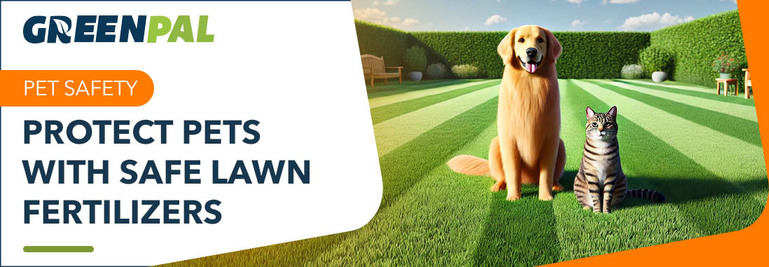
Did you know that one of the most common calls the Animal Poison Control Center (APCC) receives is about pets accidentally ingesting lawn and garden products? It's in the top ten. It's a fact highlighting the importance of pet-safe products.
Our pets, especially dogs, spend considerable time on the grass. As homeowners, we strive to maintain a beautiful lawn, but our primary concern is always the safety of our furry friends. A dog-friendly yard is not just a luxury — it's a necessity.
Traditional fertilizers overflow with chemicals; organic products aren't always the best. Many options prove harmful to pets' digestive systems if they ingest them. Fertilizers might also irritate a furry friend's skin.
Fertilizers boost soil's nutrient levels. So, they are a necessary component of a healthy lawn. The problems come with the ingredients. Most fertilizers contain nitrogen, potassium, phosphorus, and iron.
According to the Pet Poison Helpline, "small ingestions of fertilizer may only result in mild stomach upset, larger ingestions can result in severe poisoning from the iron, nitrogen and other chemicals."
Pet owners often seek chemical-free fertilizers, believing they are safe for pets. These fertilizers, typically made from bone meal, blood meal, or compost, vary in their level of safety. While it's important to note that 'pet-safe' doesn't mean completely harmless, they provide a significantly safer alternative. Their benefits include:
Non-toxic ingredients which reduce the risk of poisoning or skin irritation.
They contain slow-release nutrients that ensure steady growth and health of the lawn over time.
Ingredients that are less destructive to water sources and more environmentally friendly.
Key Takeaways
Pet Safety: Traditional fertilizers can harm pets; opt for pet-safe alternatives. |
Organic Risks: Even organic fertilizers can cause issues like gastrointestinal distress in pets. |
Safe Products: Look for OMRI-certified products for safer lawn care. |
Usage Tips: Follow instructions, wait longer before letting pets on treated lawns, and monitor them. |
Top Choices: Safer options include Scotts Natural Lawn Food, Espoma Organic Lawn Food, and Purely Organic Lawn Food. |
Are Organic Lawn Fertilizers Safe for Dogs?
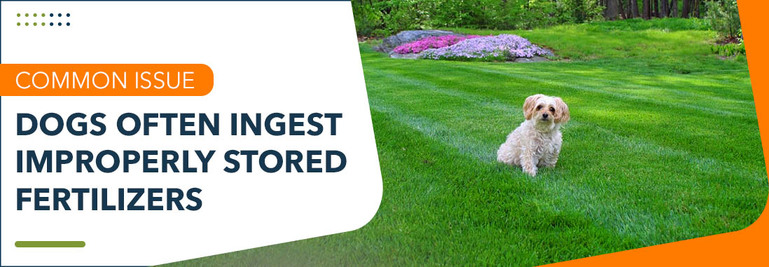
Most chemical fertilizers contain potassium (potash), nitrogen, and phosphorus. These can be harmful to pets and are listed on a package both on the ingredients list and a numerical identifier (i.e., 30-10-10). Accidental ingestion from exposure to a treated lawn is one of the most common causes of lawn fertilizer allergies in dogs. Of course, cases of dogs eating improperly stored fertilizer are far too common.
With these risks, pet parents might wonder, "Are organic lawn fertilizers safe for dogs?"
Again, safer. Not harmless. Meal-based fertilizers can concentrate in the stomach, resulting in a bowel obstruction or severe and painful inflammation of the pancreas (pancreatitis).
These include:
Bone meal
Cottonseed meal
Blood meal
Kelp meal
Fish emulsion
Bat guano
Feather meal
The most common cause of lawn fertilizer allergies is accidental ingestion from exposure to a treated lawn, although there have also been many cases of dogs eating the fertilizer itself. Plus, some breeds tend to be more susceptible to fertilizer allergies. Here are a few:
Shetland Sheepdogs
Scottish Terriers
Beagles
Shetland Sheepdogs
West Highland White Terriers
Wirehair Terriers
How to know what fertilizer is bad for dogs?
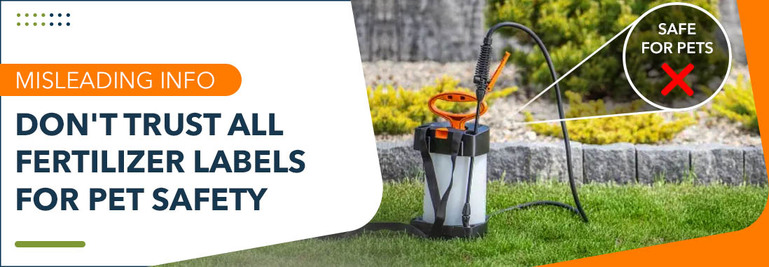
It can be hard to tell what organic fertilizers are safe for pets. Labeling can often be misleading and, sometimes, completely false.
The Organic Materials Review Institute (OMRI) helps solve that problem. They are a nonprofit, public service organization that reviews products for use in certified organic production and processing. OMRI was founded in 1997 to fill a growing need for reliable information about materials allowed in organic agriculture.
OMRI saw the need for transparency. With the input and cooperation of dedicated organic certifiers, scientists, and farmers, OMRI provides transparency in the review of materials and clearly defines trustworthy products.
What is OMRI's review process?
OMRI's multi-step review process ensures that products are vetted and accurate. OMRI staff performs an initial screening to ensure the application is complete and no additional information is needed.
After the application is finished, an OMRI product Review Coordinator reviews the product for compliance based on the specified organic standard and prepares a summary and recommendation.
The OMRI Review Panel takes all of this into account. They then vote on the product's acceptance or rejection or ask for further information.
If a product is approved, OMRI issues an approval letter and certificate and is designated as "Allowed with Restriction" or "Allowed." Finally, the product is added to the OMRI Product List.
OMRI-listed means that the item has been reviewed and approved by the OMRI for use in organic production. These labels provide guidelines for consumers and farmers:
The OMRI Listed seal shows that a product complies with organic standards. The labeling will help guide consumers in better determining its use case.
Compost as an organic fertilizer
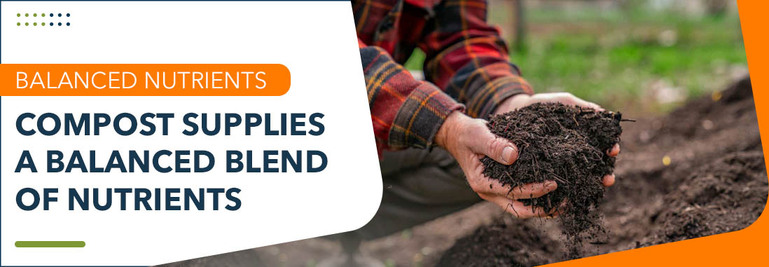
The USDA defines fertilizer as "any organic or inorganic material of natural or synthetic origin which is added to soil to provide nutrients, including nitrogen, phosphorus, and potassium, necessary to sustain plant growth."
Compost often meets this definition.
It results from decomposition: a blend of organic materials from around the home and garden, including kitchen scraps and yard clippings.
Compost supplies plants with a balanced blend of the nutrients they need. These include nitrogen, phosphorus, potassium, and trace elements such as calcium, magnesium, and iron.
Plants crave these nutrients.
They need them for healthy growth. Compared with synthetic fertilizers, compost places organic materials back into the soil — mainly because it encourages a diverse soil microbiome that includes beneficial fungi and bacteria to aid plant health and nutrient cycling. It can help sandy soils hold more water and improve drainage in clay soils.
Recommendations for Safe Use
No fertilizers are entirely safe for pets. We combed through the components and material safety data sheets (MSDS) of several fertilizers labeled pet safe and can conclude one thing: there are safer options but nothing that pets could chow down on without causing, at the very least, some gastrointestinal distress.
Here are some tips to keep your pets safe when using any fertilizer:
Wait longer than recommended: Wait two or even three days before allowing a pet to access an application area — even for those products that claim a pet can be allowed back onto a lawn immediately. Several users of lawn fertilizers labeled as pet-safe noted issues with their pets coming into contact with the product.
Watch your pets: It goes without saying, but keep pets away from treated lawns, plants, or soil until completely dry, and watering down pets can help reduce their exposure to fertilizer.
Call your vet: Don't delay if your pet becomes sick after fertilizing your lawn. Call your veterinarian immediately.
Top Pet Safe Lawn Fertilizers
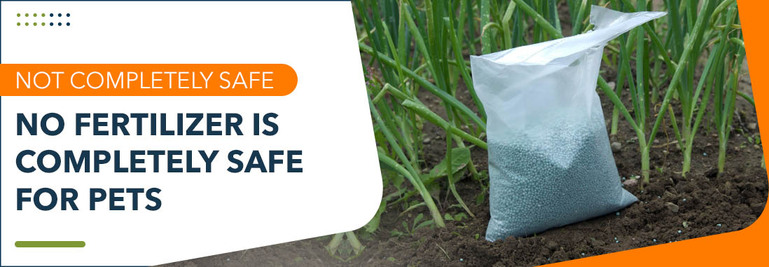
With tons of fertilizers labeled pet-safe, it's a challenge to find safe products that keep a lawn healthy. We searched through several products listed as pet safe and took a look at the OMRI product list to gather these products. It’s certainly not exhaustive and simply represents a small sample size of some of those fertilizers on the market that are safer for pets — certainly not completely safe and homeowners should always follow all product guidelines.
Scotts Natural Lawn Food
Scotts Natural Lawn Food is an all-natural fertilizer designed to feed your lawn and keep it green all year without harming your pets. Apply it any time during the growing season on any grass type. This OMRI-listed product has mixed reviews when it comes to pet safety.
Made from natural ingredients like feather meal and soybean meal, Scotts Natural Lawn Food is easy to spread and works well with any lawn spreader.
Espoma Organic Lawn Food All Seasons
Another excellent pet-friendly lawn fertilizer is Espoma Organic Lawn Food for All Seasons. Since it contains a natural blend of ingredients, Espoma is safer for pets than other products on the market. It includes ingredients such as poultry manure and feather meal.
Purely Organic Lawn Food
Purely Organic Lawn Food is an alternative to synthetic fertilizers, providing the essential nutrients your lawn needs without chemicals. Its plant-based formula includes ingredients such as soy protein hydrolysate.
Many users like the fact that it is simple to apply and covers a large area per bag.
Frequently asked questions
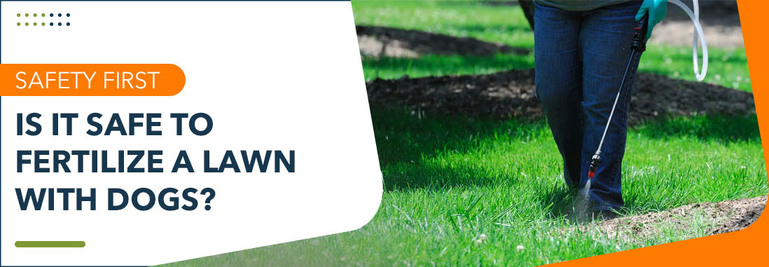
Is it safe to fertilize a lawn with dogs?
Whether or not it is safe to fertilize a lawn with dogs depends on the product ingredients and how well the product guidelines are followed. Synthetic and organic fertilizers both pose a risk for pets.
Is Scotts Turf Builder fertilizer safe for pets?
Some fertilizers may be safer than others, but all fertilizers must be stored away from pets, and homeowners must follow all product guidelines. According to scotts.com, "areas treated with Scotts® Turf Builder® Lawn Fertilizer can be entered immediately after application, although we recommend watering the lawn and waiting until it dries before anyone walks on it. That helps activate the fertilizer and prevents it from being tracked into the house."
Is granular lawn fertilizer safe for dogs?
No. All fertilizers must be stored safely away from pets. Granular fertilizers are no exception and may even be more appealing to pets in some instances.
Is milorganite fertilizer harmful to dogs?
Milogranite's safety level on its MSDS is ranked at one, so there is a low risk. It may cause minimal discomfort for a pet. Still, it shows that homeowners spreading any fertilizer on their lawn should play it safe and be extra cautious about waiting to allow their pet back onto a lawn after application.
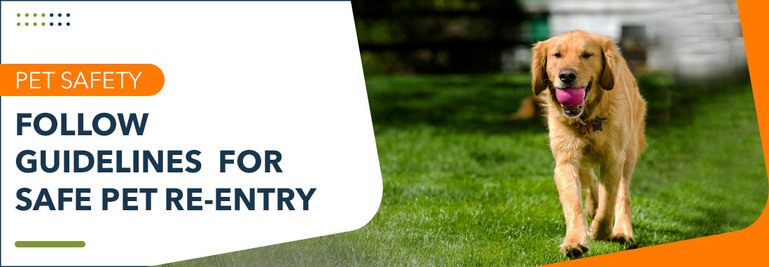
Is Jobe's organic fertilizer safe for dogs?
Jobe's claims the following about their fertilizers:" ... our fertilizers are non-toxic and safe to use around pets and children. We recommend storing in a tightly sealed container away from pets and children. Pets (particularly cats and dogs) will be attracted to the smell of our organic fertilizers."
How long after fertilizer is it safe for dogs?
Each product should have instructions on how long to wait before allowing your pet back onto your lawn after fertilizing. Many say it's okay once it's dry, while others state waiting 48 to 72 hours regardless.
Quick Summary
Aspect |
Details |
Pet Hazard & Ingredients |
Pets ingesting lawn products is a top call to Animal Poison Control Center. Harmful ingredients include nitrogen, potassium, phosphorus, and iron. |
Chemical vs. Organic Fertilizers |
Chemical fertilizers are toxic; organic fertilizers are safer but not completely harmless, potentially causing gastrointestinal issues. |
OMRI Certification |
OMRI certifies products as safer for pets and provides transparency in organic labeling. |
Top Pet-Safe Fertilizers |
Safer options include Scotts Natural Lawn Food, Espoma Organic Lawn Food, and Purely Organic Lawn Food. |
Safety Tips |
Wait longer before allowing pets on treated areas, keep pets away until dry, and contact a vet if pets become sick. |
Fertilizer Use Guidelines |
Follow product instructions, store safely, and ensure lawns are dry before pet access. Certain breeds, like Shetland Sheepdogs and Beagles, may be more susceptible to allergies. |
Disclaimer: The content of this post is not veterinary advice. Several factors (amount of substance ingested, size of the animal, allergies, etc.) determine what is toxic to a particular pet. In this article, we do not claim to verify the safety of any given product. Make sure to follow all product guidelines. Call the Pet Poison Helpline or seek immediate veterinary treatment if your pet has eaten something potentially toxic.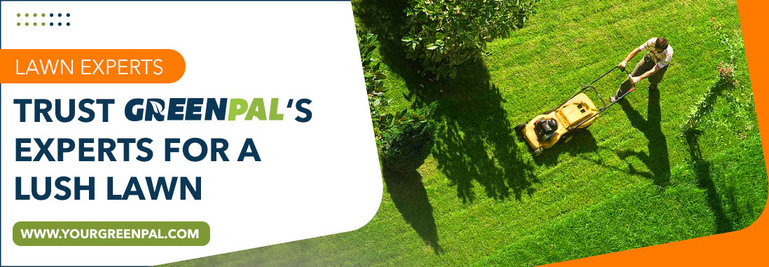





 Share
Share











